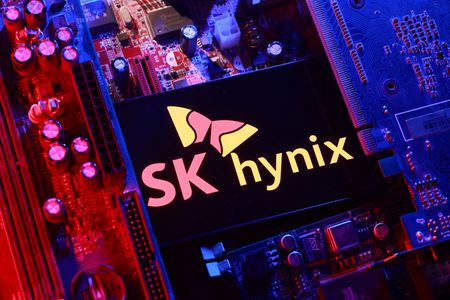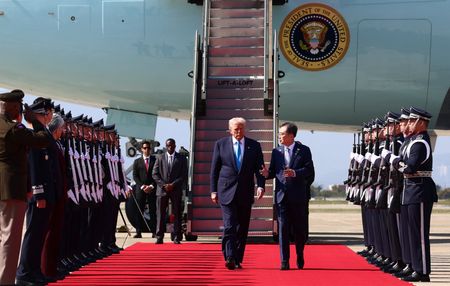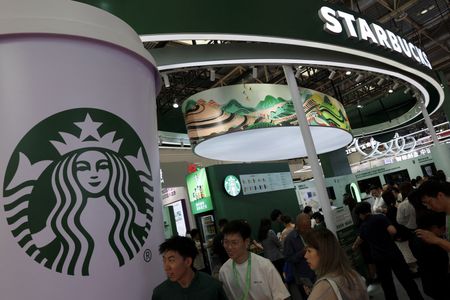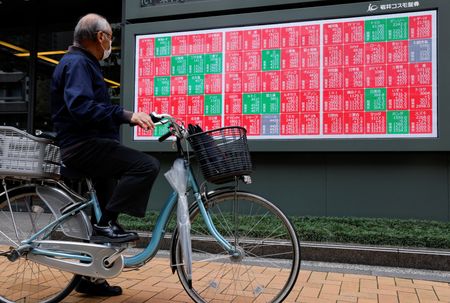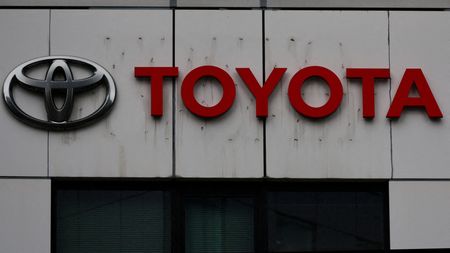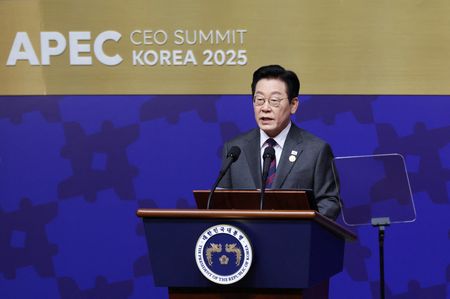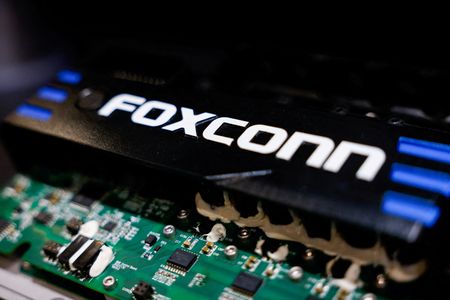By Heekyong Yang, Hyunjoo Jin and Joyce Lee
SEOUL (Reuters) -South Korea’s SK Hynix has sold out all its chip production for next year and plans to sharply boost investments, expecting an extended chip “super cycle” spurred by the AI boom, it said on Wednesday after reporting a record quarterly profit.
The company, which supplies artificial intelligence chip leader Nvidia, said supply growth for memory chips is likely to be limited just as demand is surging, with customers vying to expand investments in AI data centre infrastructure.
SK Hynix shares rose as much as 6% after the record profit, outpacing a 1.5% rise in the benchmark KOSPI.
A growing number of customers are scrambling to lock in supplies in response to a chip shortage, placing orders for next year in advance and pushing for long-term contracts, the company said.
At the same time, a shift in production to high-bandwidth memory (HBM) has strained output of conventional memory, such as DRAM, and “total output will inevitably remain limited,” said Kim Kyu-hyun, SK Hynix’s head of DRAM marketing.
“This structural constraint on DRAM supply is expected to support the current prolonged memory super cycle, as supply growth lags behind accelerating demand,” he said.
SK Hynix reported a record 11.4 trillion won ($8.02 billion) operating profit for the July-September period, up 62% from a year earlier and in line with a forecast by LSEG SmartEstimate.
Quarterly revenue rose 39% in the third quarter to 24.4 trillion won.
DEMAND GROWTH OUTSTRIPS SUPPLY
SK Hynix has already secured full customer demand for its entire DRAM, HBM, and NAND production for next year and plans to start shipping the next-generation HBM4 chips in the fourth quarter of this year.
When asked about its HBM pricing for next year, the company said it would be able to maintain profitability on its HBM products.
The chip maker expects DRAM shipments to grow by more than 20% year-on-year in 2026.
“DRAM inventories have dropped to extremely low levels, and for DDR5 products, newly produced chips must be shipped to customers immediately to meet demand,” said Kim.
While thriving on a strong market for conventional memory, the company wants to maintain its edge in advanced AI chips supplied to Nvidia, in the face of mounting competition from rivals such as Samsung Electronics and Micron.
SK Hynix said it had completed discussions with key customers regarding HBM supply for 2026, and plans a full-scale sales expansion of HBM4 products next year.
SK Hynix said the HBM market is expected to post annual growth of over 30% over the next five years, supported by expanding investments from big tech and AI companies, even under a conservative outlook.
The company added that its recent letter of intent with ChatGPT maker OpenAI for HBM supply underscores strong AI-driven demand and the critical importance of securing HBM products.
As confidence grows in the earnings potential of the AI market, global AI companies are ramping up their investment spending, Kim said, driving rapid growth in demand for a wide range of memory products including HBM, DDR5, and enterprise SSDs.
To meet this demand, a rise in capital expenditure across the memory industry is inevitable, and SK Hynix said it expects its own spending to grow substantially from this year’s level, without specifying a figure.
Buoyed by its advantage in advanced chips, SK Hynix’s shares have surged 200% so far this year, outpacing an 87% gain in Samsung’s shares and a 67% gain in the benchmark KOSPI.
($1 = 1,421.4800 won)
(Reporting by Heekyong Yang, Hyunjoo Jin and Joyce Lee; Editing by Jamie Freed, Sonali Paul and Christian Schmollinger)

